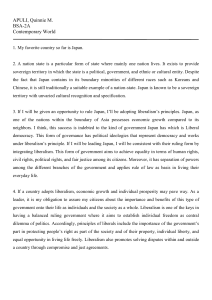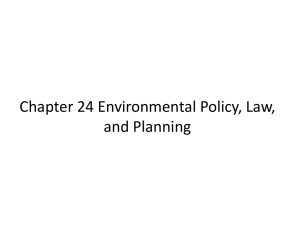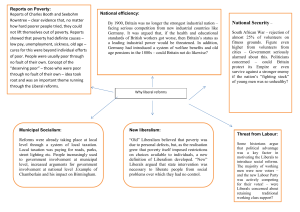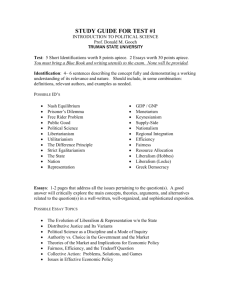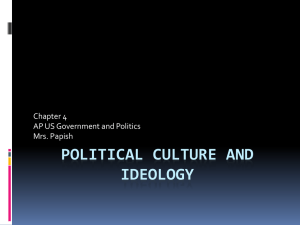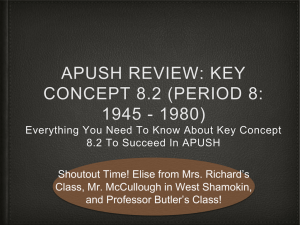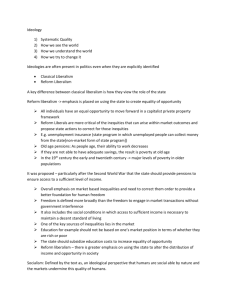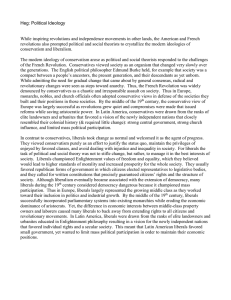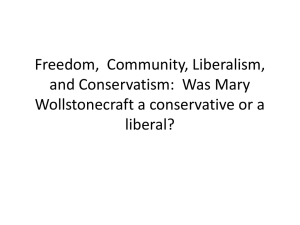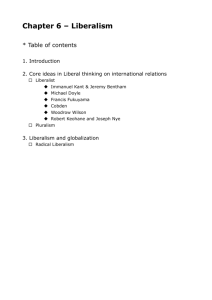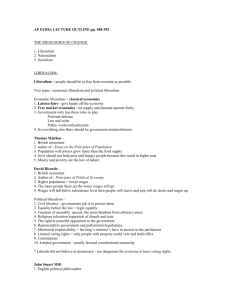Liberalism
advertisement
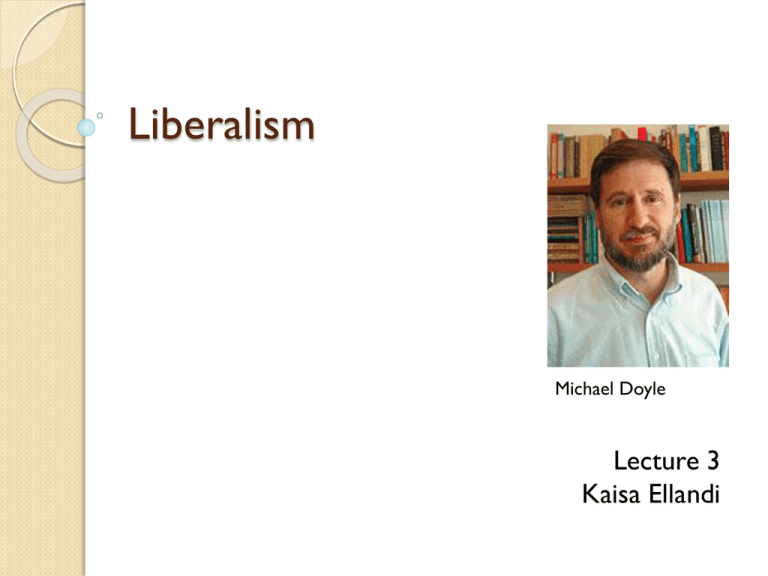
Liberalism Michael Doyle Lecture 3 Kaisa Ellandi Key points in liberalism Human kind is rational: ◦ In institutional terms- ability to pursue ones interest ◦ Ability to understand moral principles and live according to the law Most important thing is liberty, human rights Key points in liberalism There can be conflict, but harmony is also possible. Positive change is possible Cooperation is in human relations as well as international relations No central power Governments are necessary Immanuel Kant – early liberal philosopher Peace and Security Human kind understands legal norms, moral principles. Liberalist are not pacifists - states have to defend themselves against hostile aggression League of Nations – to secure peace and security. An liberalist thought. ◦ Collective security United Nations Peace and Security Peace theory ◦ people have no interest in war. ◦ tyranny must be put to an end ◦ liberal democracy Michael Doyle – democratic peace theory ◦ The more states are democratic, the more they are peaceful ◦ Zone of peace Peace and Security Harmony of Interest – between states and people for mutual interests and mutual benefits State and Power State is ◦ sovereign, ◦ autonomous ◦ has it’s territory ◦ people ◦ government State is a „necessary evil“ for citizens to go about one’s everyday business Pluralism – distribution of political power through several institutions, none of which are sovereign State and power States do not reflect the interests of one/elite group. State is autonomous body State is fair and impartial, neutral arbiter Distinction between state and civil society Civil Society and the state interact State and power State is not the only actor State can give some elements to other bodies NGO-s, multinational corporations, GONGO-s Power is distributed. People can collectively influence Power is to act collectively for „common good“ Institutions and world order Institutions are linked with each other Governments are linked with each other Societies are linked with each other Stated cooperate more extensively as before: in order to fulfill the needs of their citizens Institutions and world order In some cases states have to give up their sovereignty: to UN , EU Over the past century- new institutions treaties, regimes. Governance - collective processes of rule-making, monitoring, implementation Governance includes both informal and formal organizations at national and international level Richard Falk – „Humane Governance“ Inequality and justice Human, civil and political rights is very important to liberals UN charter Many states have refused to ratify conventions and treaties Right-leaning liberals: right of each individual treatment, equally in the eyes of the law Left-leaning liberals: more state intervention in the interests of addressing social inequality and to genuine equal opportunities Identity and community Community for protecting their independence or setting our their rights Community of human kind) (boundaries of state, nation, race, ethnicity, culture, class and gender) Global Society – normative consensus. Bonding people together, universal rights, people of the world Identity and community Transnationalism – people engage in numerous social interaction which tie people together across state boundaries Conflict and violence War can be avoided Peace is possible in cooperation with states and institutions Institutions play a central role in mediating and resolving peace
